
Kód: 09089615
Antipolitics in Central European Art
Autor Klara Kemp-Welch
Art historians have tended to frame late socialist central European art as either 'totalitarian' or 'transitional'. This bold new book challenges this established viewpoint, contending that the artists of this era cannot be simply ... celý popis
- Jazyk:
 Angličtina
Angličtina - Vazba: Brožovaná
- Počet stran: 358
Nakladatelství: Bloomsbury Publishing, 2017
- Více informací o knize

Mohlo by se vám také líbit
-

East Art Map
928 Kč -

Postsocialist Contemporary
3297 Kč -

Networking the Bloc
1211 Kč -

JFL
309 Kč -

Chroma
276 Kč -

Work
378 Kč -

M Train
378 Kč -

When It Is Darkest
523 Kč -

Agency
234 Kč -

Fantastic Beasts: The Crimes of Grindelwald - The Original Screenplay
302 Kč -

Informal Politics in Post-Communist Europe
5180 Kč -

Central and Southeast European Politics since 1989
3157 Kč -

Lonely Planet Epic Runs of the World
677 Kč -

Hold Still
302 Kč -

NKJV Study Bible, Hardcover, Burgundy, Full-Color, Comfort Print
1205 Kč -

Can't Stop Cursing You, Vol. 1
283 Kč -

Spinning Silver
259 Kč -

King of the Blues: The Rise and Reign of B.B. King
705 Kč -

Ancient Egypt
837 Kč -

Sonic The Hedgehog: The IDW Collection, Vol. 1
1234 Kč -

Lilac
631 Kč -

Assembly
290 Kč -

Bravely
476 Kč -

Dark Enchantment Minis - Pocket Sized Fantasy Art Coloring Book
221 Kč -

Hilma af Klint & Piet Mondrian: Forms of Life (Hardback) /anglais
1078 Kč -

Polish'd: Modern Vegetarian Cooking from Global Poland
679 Kč -

Direction and Destiny in the Birth Chart
705 Kč -

Comptia Cysa+ Cybersecurity Analyst Certification All-In-One Exam Guide, Third Edition (Exam Cs0-003)
1640 Kč -

The Year of Magical Thinking: The Play
386 Kč -

Seven Daughters Of Eve
302 Kč -

Audio Power Amplifier Design
2517 Kč -

Bag Making Bible
463 Kč -

Nana, Vol. 2
253 Kč -

Reflex Zone Therapy of the Feet
580 Kč -

European Stories
5785 Kč -

Angel Dark and Other Short Stories
620 Kč -

Insatiable
333 Kč -

Politically Unbecoming
255 Kč -

Dog Aggression System Every Dog Owner Needs
689 Kč -

The Development of the Personality: Seminars in Psychological Astrology; V. 1
585 Kč -
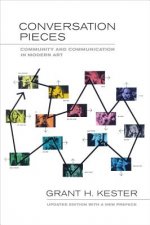
Conversation Pieces
1160 Kč -
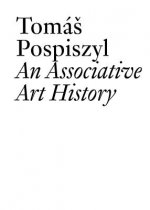
Tomas Pospiszyl
649 Kč -

High-Performance Java Persistence
1119 Kč -

Korean Phrasebook
230 Kč -

History of Graphic Design
1477 Kč -

The Kybalion: Centenary Edition
450 Kč -

Lonely Planet Tanzania
765 Kč -

Tom Hiddleston
250 Kč -

Former West
990 Kč -

Magic of M.C.Escher
677 Kč -

Jurassic Park - Das Original-Hörspiel zum Kinofilm
388 Kč -

Blok A5 premium Harry Potter
322 Kč -

Haydn:Complete Piano Concertos
827 Kč -

Sprechen Schreiben Mitreden
837 Kč -

Aus Indien und Iran
892 Kč -

MERMAID MELODY PICHI PICHI PITCH 5
266 Kč
Darujte tuto knihu ještě dnes
- Objednejte knihu a zvolte Zaslat jako dárek.
- Obratem obdržíte darovací poukaz na knihu, který můžete ihned předat obdarovanému.
- Knihu zašleme na adresu obdarovaného, o nic se nestaráte.
Více informací o knize Antipolitics in Central European Art
Nákupem získáte 118 bodů
 Anotace knihy
Anotace knihy
Art historians have tended to frame late socialist central European art as either 'totalitarian' or 'transitional'. This bold new book challenges this established viewpoint, contending that the artists of this era cannot be simply caricatured as dissident heroes, or easily subsumed into the formalist Western canon. Klara Kemp-Welch offers a compelling account of the ways in which artists in Poland, Czechoslovakia and Hungary embraced alternative forms of action-based practice just as their dissident counterparts were formulating alternative models of politics - in particular, an 'antipolitics' of self-organization by society. Drawing on Vaclav Havel's claim that 'even a word is capable of a certain radiation, of leaving a mark on the "hidden consciousness of a community"', the author argues that all independent artistic initiatives in themselves served as a vehicle for opposition, playing a part in the rebirth of civil society in the region. In doing so, she makes a case for the moral and political coherence of Central European art, theory and oppositional activism in the late-socialist period and for the region's centrality to late-twentieth century intellectual and cultural history. Spanning a period punctuated by landmark events - the crushing of the Hungarian Revolution of 1956; the Warsaw Pact troops' invasion of Czechoslovakia in 1968; the signing of Charter '77 by dissident intellectuals in 1977; the birth of the Polish Solidarity movement in 1980 - while presenting powerful new readings of the work of six key artists - Tadeusz Kantor, Julius Koller, Tamas Szentjoby, Endre Tot, Ji?ri Kovanda and Jerzy Bere's - Antipolitics in Central European Art anchors art historical analysis within a robust historical framework. It traces the passage from a modernist commitment to 'disinterest', through successive waves of doubt, dissent, ironic disengagement and reticent engagement, to the eventual exhaustion of antipolitics as a strategy in the 1980s as imperatives to engage in direct political dialogue gained ground. This richly illustrated study reveals the struggle of Central European artists to enjoy freedom of expression and to reclaim public space, from within a political situation where both seemed impossible.
 Parametry knihy
Parametry knihy
Zařazení knihy Knihy v angličtině The arts History of art / art & design styles History of art & design styles: from c 1900 -
1181 Kč
- Plný název: Antipolitics in Central European Art
- Podnázev: Reticence as Dissidence Under Post-Totalitarian Rule 1956-1989
- Autor: Klara Kemp-Welch
- Jazyk:
 Angličtina
Angličtina - Vazba: Brožovaná
- Počet stran: 358
- EAN: 9781784533144
- ISBN: 1784533149
- ID: 09089615
- Nakladatelství: Bloomsbury Publishing
- Hmotnost: 790 g
- Rozměry: 178 × 235 × 24 mm
- Datum vydání: 30. March 2017
Oblíbené z jiného soudku
-

Dark Souls III: Design Works
1198 Kč -

Dark Souls: Design Works
813 Kč -

Bauhaus
383 Kč -

Dark Souls II: Design Works
1198 Kč -

Palette Perfect
626 Kč -
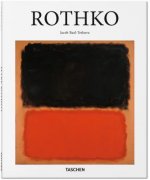
Rothko
383 Kč -

Kay Nielsen. East of the Sun and West of the Moon
421 Kč -

Why You Better Call Saul
419 Kč -

Breaking the Rules of Watercolour
543 Kč -

Abstract Expressionism
410 Kč -
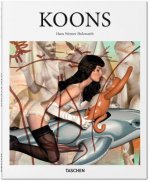
Koons
468 Kč -

A Way of Living: The Art of Willem de Kooning
1602 Kč -

Neo Rauch: At the Well
1057 Kč -

Andy Warhol 'Giant' Size
3234 Kč -

Nanduti, Lace of Paraguay
732 Kč -

Neo Rauch
1576 Kč -

Jenny Saville
3081 Kč -

Basquiat
517 Kč -

Paulina Olowska
757 Kč -

Luc Tuymans: Intolerance
2382 Kč -

Albert Oehlen
1842 Kč -

Dali. The Paintings
505 Kč -

Final Fantasy Ultimania Archive Volume 1
965 Kč -
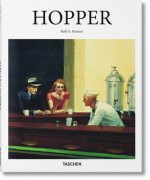
Hopper
369 Kč -
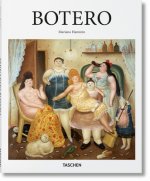
Botero
425 Kč -

Botanicals
440 Kč -

August Sander: Face of Our Time
254 Kč -

The Art of Horizon Zero Dawn
848 Kč -

Cats Galore
615 Kč -

Art of Atari
866 Kč -

Dali
410 Kč -

The Art of Loish
714 Kč -
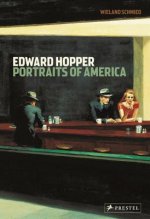
Edward Hopper
303 Kč -

Art of John Harris: Beyond the Horizon
677 Kč -

Pop Art
410 Kč -

Gio Ponti
360 Kč -

Infinity Net
431 Kč -

Charles Tunnicliffe
1169 Kč -

Ocean Liners
913 Kč -

The Legend of Zelda: Hyrule Historia
826 Kč -

David Hockney's Dog Days
276 Kč -

J. C. Leyendecker: American Imagist
1211 Kč -

Sketchbook of Loish
714 Kč -
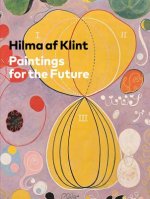
Hilma af Klint
1358 Kč -
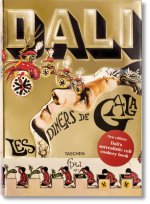
Dali. Les diners de Gala
1349 Kč -

Andrzej Wroblewski
1067 Kč -
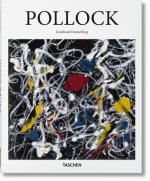
Pollock
410 Kč -

Berlin in the 1920s
290 Kč -

Egon Schiele
463 Kč
Osobní odběr Praha, Brno a 12903 dalších
Copyright ©2008-24 nejlevnejsi-knihy.cz Všechna práva vyhrazenaSoukromíCookies



 Vrácení do měsíce
Vrácení do měsíce 571 999 099 (8-15.30h)
571 999 099 (8-15.30h)